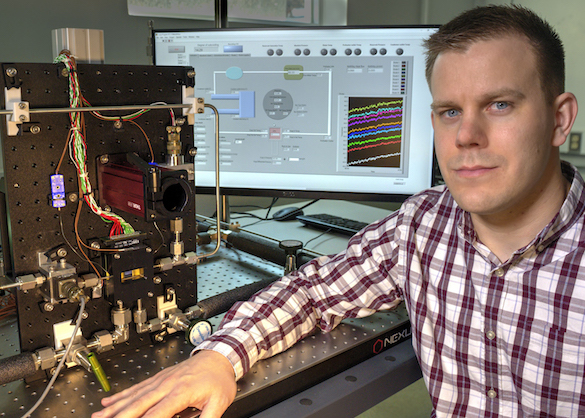Flow Boiling in Microgap Coolers - Embedded Thermal Management for Space Applications
PI: Franklin Robinson, NASA/Goddard Space Flight Center, Avram Bar-Cohen (Co-I), University of Maryland - College Park
PI: Franklin Robinson, NASA/Goddard Space Flight Center, Avram Bar-Cohen (Co-I), University of Maryland - College Park

- TA14 Thermal Management Systems
The increasing functionality and miniaturization of modern and emerging electronic devices has exposed the limitations of the current remote cooling paradigm, which relies on conduction and spreading across multiple interfaces to dissipate waste heat. Such approaches are unable to support continued improvements in device performance. Embedded cooling overcomes this limitation by facilitating direct contact between the heat-generating device and coolant flow. Systems that enable the forced coolant flow to undergo phase change within the embedded channels provide additional benefits, such as higher heat transfer coefficients, lower pumping power, and better temperature uniformity.
Experimental validation of gravity-independent behavior would enable spaceflight systems to exploit this powerful thermal management technique and reduce development time and costs through reliance on extensive ground-based testing. Microgap coolers have demonstrated orientation-independent performance. However, varying the evaporator orientation with respect to the gravity vector is not the same as eliminating it, which is why microgravity validation is required.
NASA
Technology Details
-
Selection DateNASA Internal (Oct 2016)
-
Program StatusActive
- 2 sRLV
Development Team
-
PIFranklin Robinson
-
PI Organization
-
Co-IAvram Bar-Cohen
-
Co-I Organization
-
SponsorNASA
-
More Information

